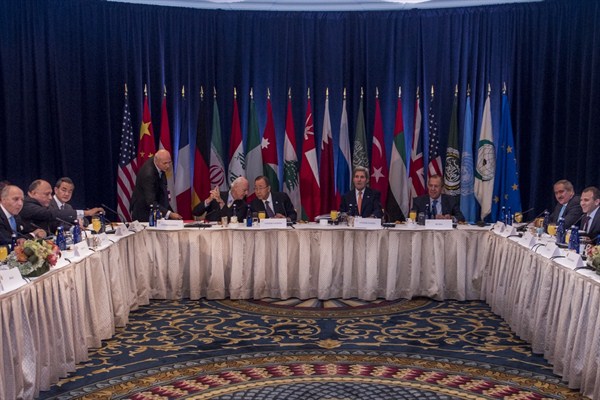The United Nations should be pleased by recent progress in three of its hardest conflict-resolution efforts. It’s not yet time for a victory lap in Yemen, Syria and Libya: All three conflicts continue to rage on the ground, and the prospect of international peacekeepers enforcing a negotiated settlement remains distant at best. But peacekeeping is always the final stage of a lengthy diplomatic process, and some deeper appreciation for the work of the U.N.’s high-level diplomats in defining a process for resolving the three conflicts, among the world’s nastiest, is warranted.
In quick succession in the final weeks of the year, progress was made in the political dynamics of these conflicts, reflecting the different ways the U.N. works to nudge armed adversaries toward peaceful political transitions.
In Yemen, the main parties to the conflict, the ousted government of President Abed Rabbu Mansour Hadi and the Houthi rebels, have now agreed to a broad framework for peace talks, which will resume in mid-January. The immediate issue is to get the parties to commit to respecting a cease-fire; the U.N. has reported multiple violations of one that went into effect Dec. 14, on the day talks began.

